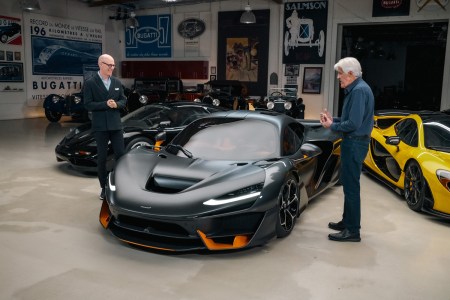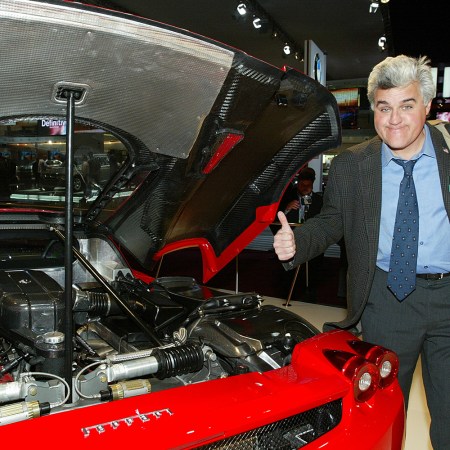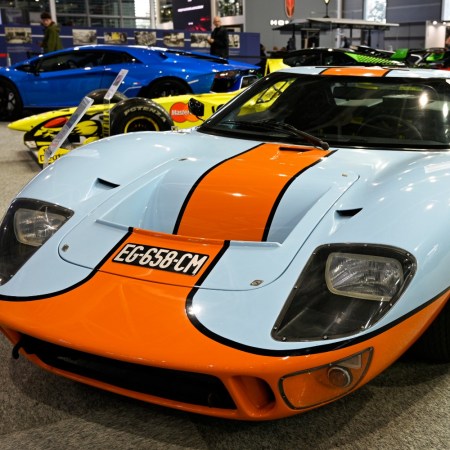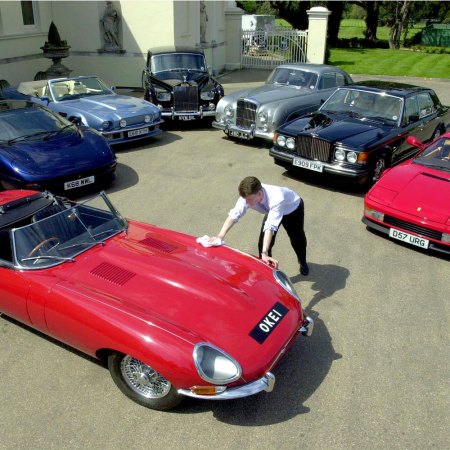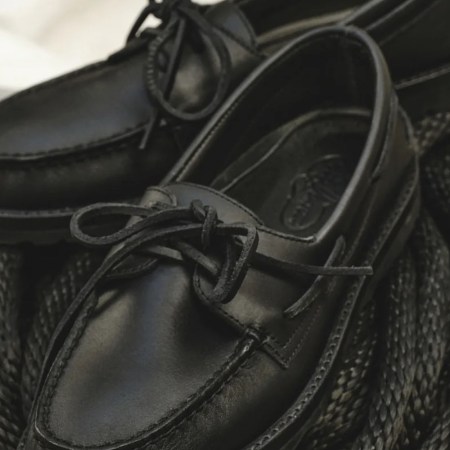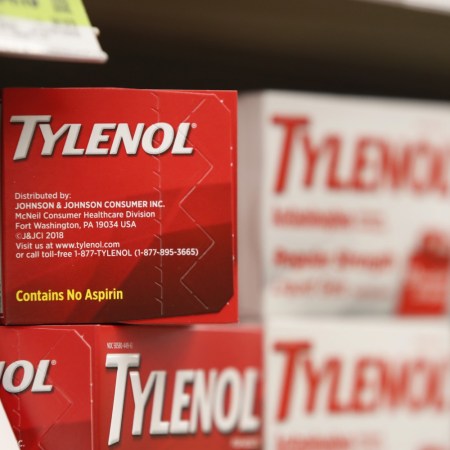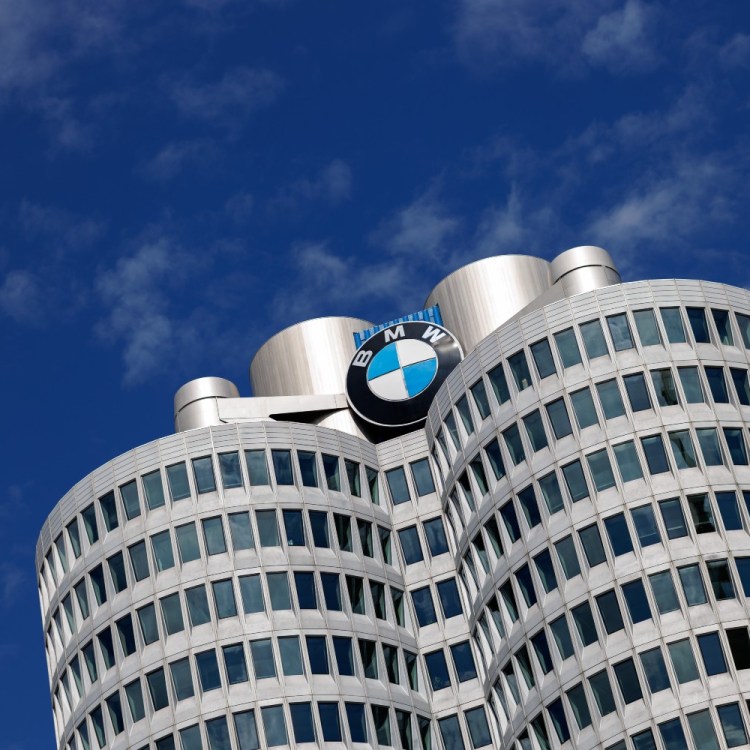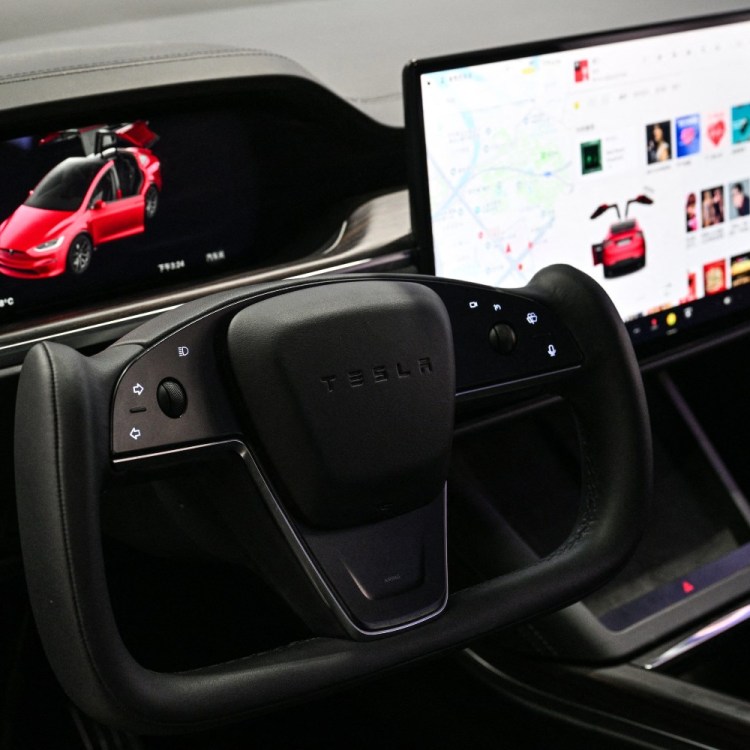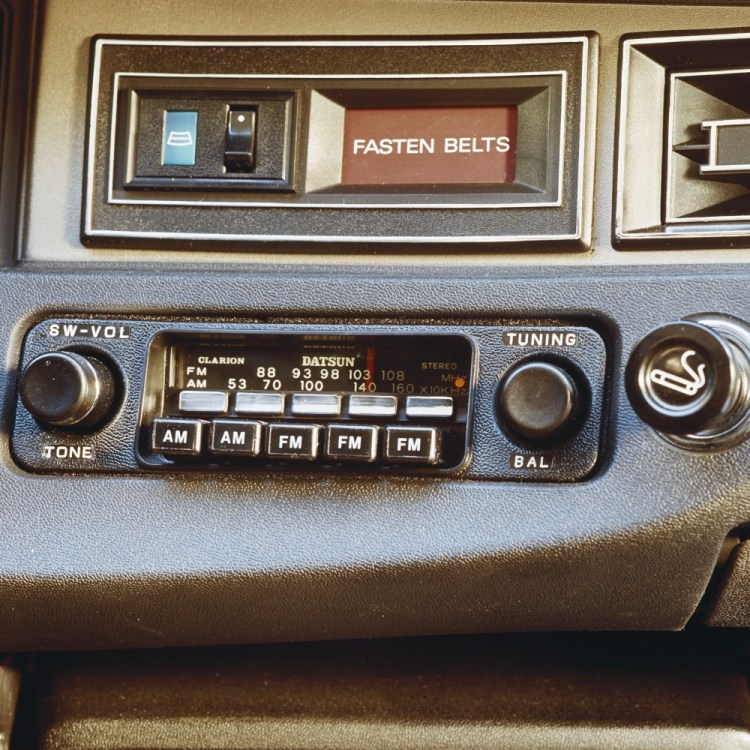There are plenty of celebrities with a penchant for great cars. A few, like Paul Newman and Michael Fassbender, have even made forays into racing. But when it comes to collecting, one name currently looms larger than the rest: Jay Leno, who’s both an avid collector and a passionate advocate for modern automotive engineering. Now, the 75-year-old is taking that advocacy into a somewhat different realm: pushing for the reform of a California law that could make life easier for classic car owners.
Spend enough time on the road and you’ll start to notice something distinctive on the license plates of older vehicles: a “classic” or “historic” designation. This isn’t just an acknowledgement of a vehicle’s age and endurance; it’s also a sign that a vehicle is held to different standards when it comes to things like emissions.
That’s where Leno’s advocacy work in California enters the picture. In an op-ed published on Friday at Hagerty, Leno explained his stance on the issue: “[W]hile most states with smog programs exempt cars once they reach 20, 25 years old, California has the toughest rule in the nation. Here, anything from 1976 or newer has to be smog-tested forever.”
The proposed law Leno is advocating for, Senate Bill 712, which has come to be known as “Leno’s Law,” would exempt collector cars 35 years and older from the state’s emissions screenings. As KJ Jones explained for Hot Rod, there are some caveats to the bill, including that it only applies to vehicles that are minimally driven — for car shows or other rare occasions. In other words, if you’re commuting 50 miles every day with a car built in 1980, you’re going to need to be compliant with a stricter set of emissions rules.
Jay Leno Said He’d Never Buy Another Supercar. Then Came the McLaren W1.
The legendary host and gearhead takes us through his ongoing love affair with the British automaker, including one particularly high-powered car: “It always scares me to death — and I enjoy it”Leno’s editorial points to a few reasons why he’s supporting this bill, including the cost and time required to check emissions on older vehicles. Plenty of facilities can easily monitor the emissions of cars built in the 1990s and later, he notes; for older vehicles, things get a lot more complicated.
“The cars have to be tested every couple of years on roller dynos and run up to different speeds with a probe up their tailpipes. The test can cost $200, and that’s if you can find a shop that will do it,” Leno writes. “Because the equipment is so expensive and has to be maintained, and the population of cars needing this type of test is dropping fast…shops have been getting out of the business.”
Earlier this month, this bill passed the California Senate and is now being considered by the State Assembly. As of June 16, it was referred to that body’s committee on transportation; if it passes, SB 712 will go into effect on January 1, 2027.
This article appeared in an InsideHook newsletter. Sign up for free to get more on travel, wellness, style, drinking, and culture.

